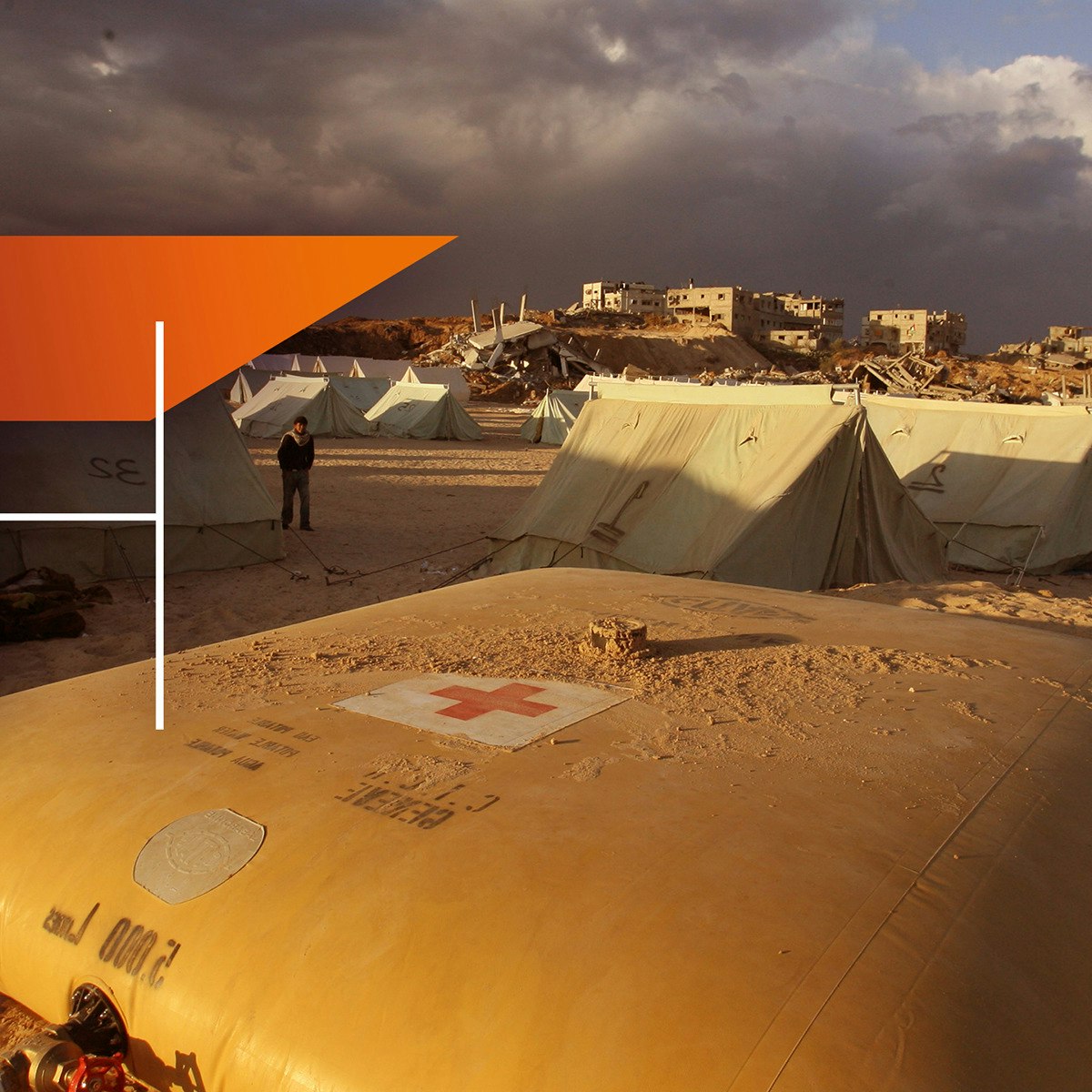
The world is facing unprecedented humanitarian needs. Today’s humanitarian crisis tend to be greater in number, often in urban settings, longer in duration and broader in regional impact. They generate human sufferings on a greater scale, disrupt essential services, such as water supply or sanitation and put health of large population at risk. Engineers and technical specialists in water, sanitation, energy, environment, and in other related fields play a vital role to respond to these challenges and growing needs. In the humanitarian sector, they are called the public health engineers and today they are increasingly needed! Why public health engineering matters so much in humanitarian crises? And how its related activities are carrying out in such complex environment? This is what this MOOC is all about!
Read more
The world is facing unprecedented humanitarian needs. Today’s humanitarian crisis tend to be greater in number, often in urban settings, longer in duration and broader in regional impact. They generate human sufferings on a greater scale, disrupt essential services, such as water supply or sanitation and put health of large population at risk. Engineers and technical specialists in water, sanitation, energy, environment, and in other related fields play a vital role to respond to these challenges and growing needs. In the humanitarian sector, they are called the public health engineers and today they are increasingly needed! Why public health engineering matters so much in humanitarian crises? And how its related activities are carrying out in such complex environment? This is what this MOOC is all about!
The world is facing unprecedented humanitarian needs. Today’s humanitarian crisis tend to be greater in number, often in urban settings, longer in duration and broader in regional impact. They generate human sufferings on a greater scale, disrupt essential services, such as water supply or sanitation and put health of large population at risk. Engineers and technical specialists in water, sanitation, energy, environment, and in other related fields play a vital role to respond to these challenges and growing needs. In the humanitarian sector, they are called the public health engineers and today they are increasingly needed! Why public health engineering matters so much in humanitarian crises? And how its related activities are carrying out in such complex environment? This is what this MOOC is all about!
The EPFL, EAWAG-SANDEC and ICRC have decided to partner to guide you through this introduction to the fascinating field of public health engineering in humanitarian contexts.
What's inside
Syllabus
Public Health Engineering
The first week introduces the topic of public health engineering and see how engineers can have a significant impact to reduce the mortality and morbidity encountered in many humanitarian contexts. In order to do so, engineers should have a good understanding on how infectious diseases are transmitted. This is why you will be introduced to different environmental transmission pathways of diseases and you will see some measures to be taken to prevent the spread of some diseases. Real study case examples will be introduced to support the understanding.
Read more
Syllabus
Good to know
Save this course
Reviews summary
Public health eng. in humanitarian contexts
Activities
Review water resource engineering concepts
Show steps
Refresh essential knowledge on water resource engineering concepts to enhance understanding of course materials and improve overall comprehension.
Browse courses on
Water Treatment
Show steps
-
Review notes and textbooks from previous water resource engineering courses
-
Participate in online forums or discussion groups related to water resource engineering
-
Solve practice problems and review fundamental equations
Show all one activities
Review water resource engineering concepts
Show steps
Refresh essential knowledge on water resource engineering concepts to enhance understanding of course materials and improve overall comprehension.
Browse courses on
Water Treatment
Show steps
- Review notes and textbooks from previous water resource engineering courses
- Participate in online forums or discussion groups related to water resource engineering
- Solve practice problems and review fundamental equations
Career center
Public Health Engineer
Environmental Engineer
Water Resources Engineer
Civil Engineer
Sanitation Engineer
Environmental Consultant
Water Quality Specialist
Waste Management Specialist
Hydrologist
Epidemiologist
Microbiologist
Occupational Health and Safety Specialist
Sustainability Manager
Policy Analyst
Water Treatment Plant Operator
Featured in The Course Notes
Reading list
Share
Similar courses
OpenCourser helps millions of learners each year. People visit us to learn workspace skills, ace their exams, and nurture their curiosity.
Our extensive catalog contains over 50,000 courses and twice as many books. Browse by search, by topic, or even by career interests. We'll match you to the right resources quickly.
Find this site helpful? Tell a friend about us.
We're supported by our community of learners. When you purchase or subscribe to courses and programs or purchase books, we may earn a commission from our partners.
Your purchases help us maintain our catalog and keep our servers humming without ads.
Thank you for supporting OpenCourser.



